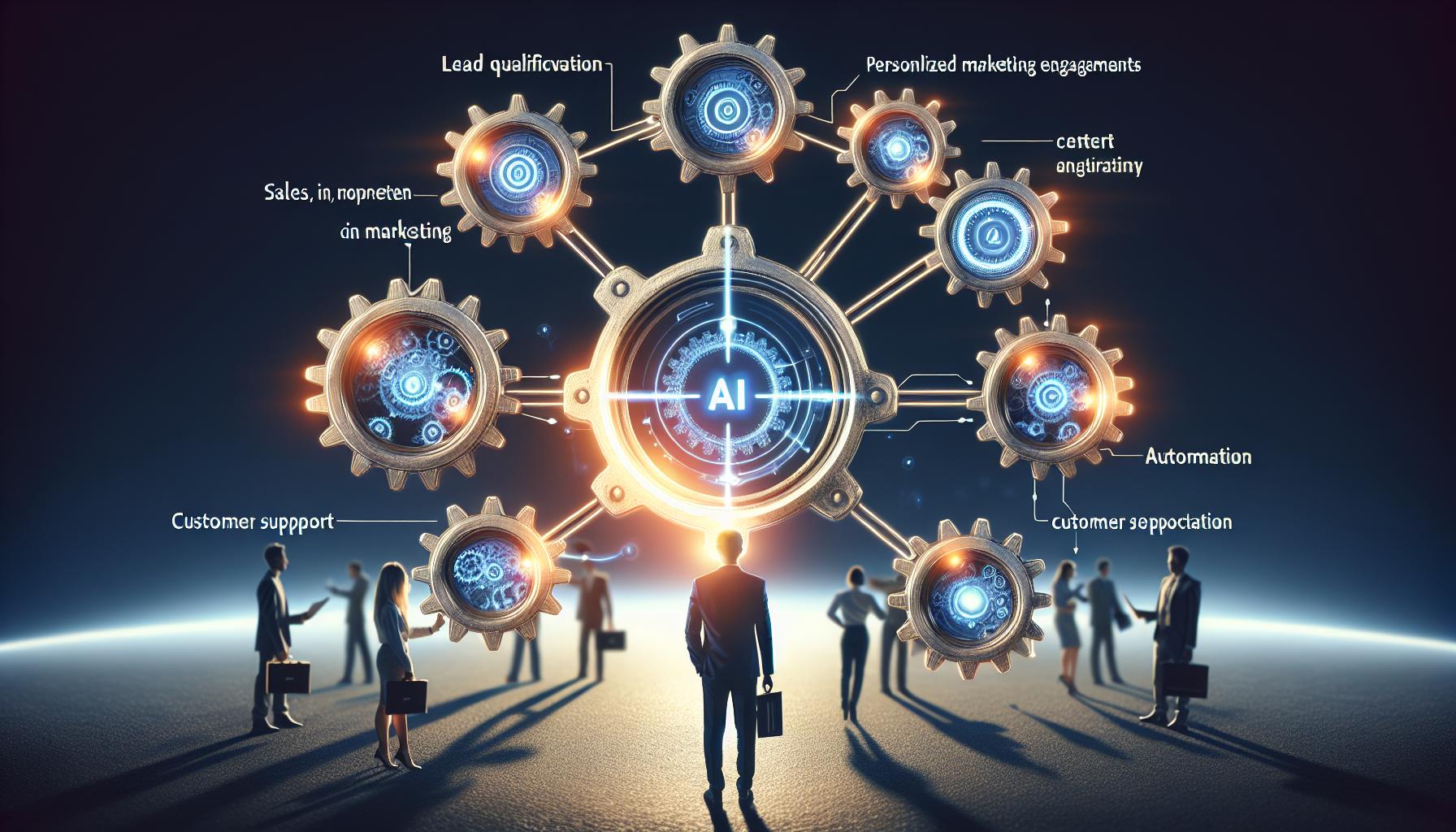AI: Bridging the Gap Between Sales, Marketing, and Support

Expanding on the foundational insights into AI's transformative role across business operations, let's delve deeper into specific applications, emerging trends, and the future potential of A.I. in redefining how businesses operate. This exploration will highlight not only the efficiency and effectiveness brought by A.I. but also the strategic advantages and challenges it presents.
AI-Driven Predictive Analytics in Operations
The power of A.I. to predict trends and behaviors is revolutionizing operational planning and decision-making. By leveraging vast amounts of data, A.I. algorithms can forecast demand, identify potential supply chain disruptions, and optimize inventory management. This predictive capability supports strategic planning, risk management, and resource allocation, ensuring businesses can act proactively rather than reactively. For instance, in the retail industry, AI-driven analytics have been crucial in predicting consumer buying patterns, thus optimizing stock levels and reducing waste.
Enhancing Operational Efficiency with Process Automation
AI's role in automating routine tasks extends beyond customer-facing roles into the heart of business operations. Robotic Process Automation (RPA), powered by AI, is streamlining administrative tasks, financial operations, and even regulatory compliance processes. This automation not only reduces the scope for human error but also frees up human resources for more strategic, creative tasks that A.I. cannot replicate. For example, in the financial sector, A.I. has significantly sped up loan approval processes by automating credit scoring and due diligence.
Strategic Decision Making with A.I. Insights
AI's ability to analyze complex datasets extends to strategic decision-making. By providing insights into market trends, customer preferences, and competitive dynamics, A.I. supports businesses in making informed strategic decisions. Tools like SWOT analysis, powered by AI, can now incorporate real-time data and predictive insights, offering a more nuanced understanding of strategic opportunities and threats. This capability is particularly valuable in fast-moving sectors like technology and e-commerce, where market conditions can change rapidly.
Personalization at Scale in Customer Interactions
AI's capacity for personalization is revolutionizing customer interactions. By analyzing customer data, A.I. enables businesses to offer personalized recommendations, tailor marketing messages, and anticipate customer needs. This level of personalization enhances customer engagement and loyalty, driving sales and improving customer satisfaction. For instance, streaming services like Netflix use A.I. to personalize viewing recommendations, significantly enhancing user experience and engagement.
Challenges and Ethical Considerations
While A.I. offers numerous advantages, it also presents challenges, particularly regarding ethics, privacy, and data security. The use of customer data for AI-driven personalization raises concerns about privacy and consent. Businesses must navigate these challenges carefully, ensuring ethical use of A.I. and transparency in how customer data is used and protected. Moreover, as A.I. becomes more integral to operations, businesses must also address the potential impact on employment and workforce skills, investing in retraining and upskilling initiatives to prepare employees for an AI-augmented future.
Future Directions: A.I. and Human Collaboration
Looking ahead, the future of A.I. in business operations lies in the synergy between A.I. and human intelligence. While A.I. can enhance efficiency and provide insights at scale, human creativity, empathy, and strategic thinking remain irreplaceable. The most successful businesses will be those that leverage A.I. to augment human skills, fostering collaboration between A.I. systems and human teams to innovate, solve complex problems, and create more meaningful customer experiences.
Conclusion: Navigating the A.I. Transformation
AI's role in business operations is undeniably transformative, offering unprecedented opportunities for efficiency, personalization, and strategic insight. As businesses continue to navigate this AI-driven landscape, the key to success will lie in balancing the capabilities of A.I. with the unique strengths of human intelligence, ensuring ethical and responsible use of technology. By doing so, businesses can harness the full potential of A.I. to not only improve their bottom line but also redefine their operational models and strategic outlook in the digital age.




